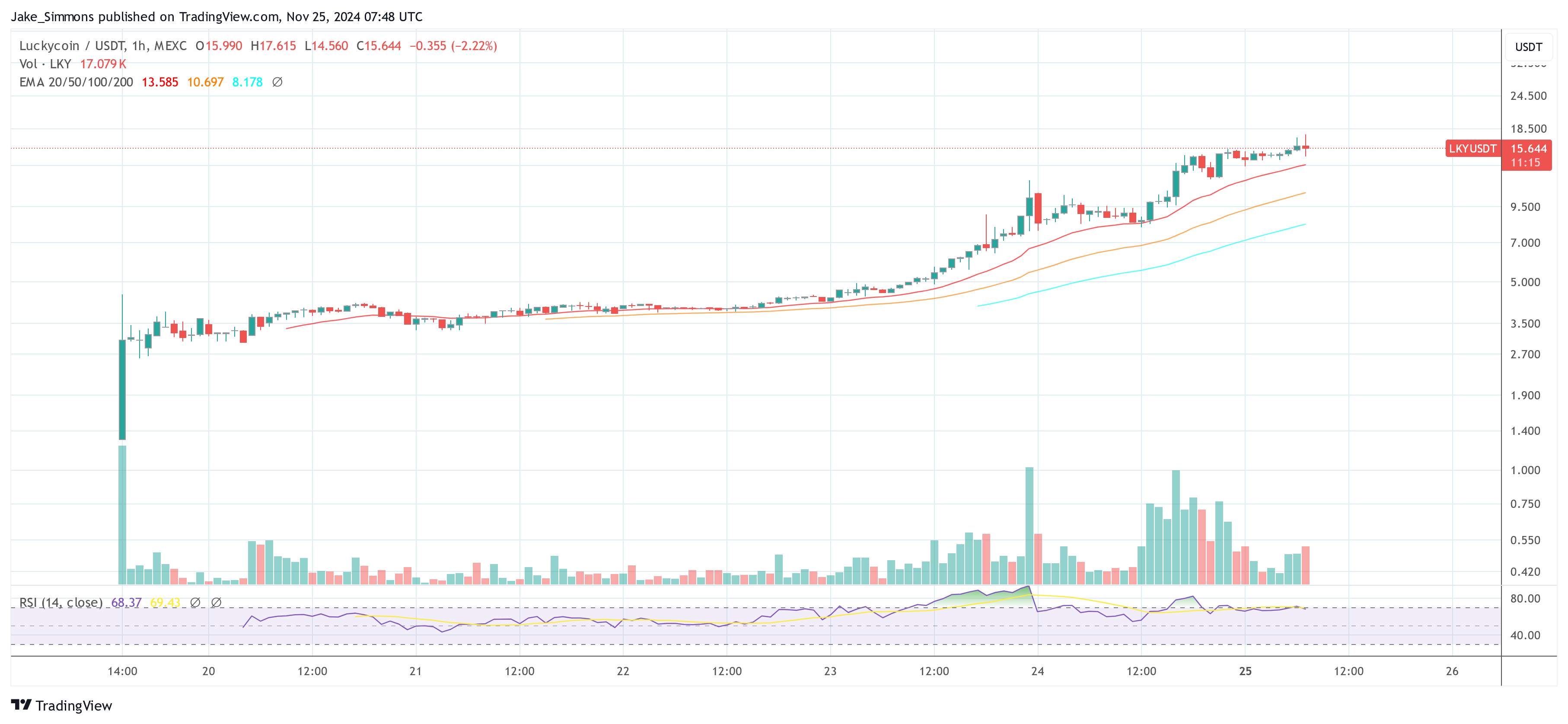Paxful, founded in 2015, has established itself as one of the world’s prominent peer-to-peer Bitcoin marketplaces, with a strong mission to enable financial access for individuals globally. Boasting an extensive user base of 9 million and offering over 350 payment options, the platform has garnered substantial popularity.
However, on July 7, Ray Youssef, the former CEO of Paxful, conveyed a message to the platform’s users, urging them to cease trading activities.
Youssef expressed concerns about the current state of Paxful, claiming that the company is now solely focused on paying legal bills and cautioned that no African or non-American should trust any IS corporation. These warnings from Youssef were prompted by reports that Paxful had removed the reserve funds amount from the platform’s status page.
Related Reading: Paxful CEO Says He Has ‘Lost’ 5 Bank Accounts
Reserve funds are often savings accounts or highly liquid assets placed aside to cover unforeseen financial responsibilities, and Youssef believes that Paxful’s lack of reserves puts the company at risk of financial instability. Without these funds, Paxful may struggle to manage cash flow fluctuations, fulfill immediate financial obligations, or respond effectively to emergencies. Consequently, this situation has the potential to jeopardize Paxful’s survival.
Youssef also concurred with a Twitter user who compared Paxful and the collapse of FTX. The user highlighted that FTX, despite being one of the world’s largest cryptocurrency exchanges at the time, had filed for bankruptcy. This collapse was triggered by Changpeng Zhao, the CEO of Binance, announcing that his exchange would be dumping its FTT Token holdings, amounting to around $2 billion. The bank run that followed this announcement opened up a web of lies and mismanagement that led to the eventual collapse of the exchange.
The announcement caused a sharp decline in the price of FTT and generated concern among investors. As a result, traders hurriedly withdrew their funds from FTX, leading the company to confront a substantial $8 billion shortfall.
To prevent a similar case like FTX bankruptcy, Youssef advised Paxful users to withdraw their funds until further investigation is conducted to uncover the truth behind the situation.
Related Reading: FTX Puts Sale Of $500 Million Stake In AI Firm Anthropic On Hold
Trading on various P2P marketplaces, including Paxful, was temporarily suspended in early April due to regulatory reasons. When Paxful announced the resumption of services, Ray Youssef, who had already left the organization, expressed his uncertainty regarding the current state of affairs and emphasized his inability to vouch for anything happening within Paxful.

Since he departed from the exchange, Youssef has been actively promoting Civkit, the platform he founded. While many of his followers have praised his efforts, accusations have labeled him an attention seeker. Additionally, some individuals have accused him of leveraging his influence to undermine competitors and rivals in the industry.
However, on July 7, Ray Youssef, the former CEO of Paxful, conveyed a message to the platform’s users, urging them to cease trading activities.
Financial Instability And Comparisons To FTX Collapse
Youssef expressed concerns about the current state of Paxful, claiming that the company is now solely focused on paying legal bills and cautioned that no African or non-American should trust any IS corporation. These warnings from Youssef were prompted by reports that Paxful had removed the reserve funds amount from the platform’s status page.
Related Reading: Paxful CEO Says He Has ‘Lost’ 5 Bank Accounts
Reserve funds are often savings accounts or highly liquid assets placed aside to cover unforeseen financial responsibilities, and Youssef believes that Paxful’s lack of reserves puts the company at risk of financial instability. Without these funds, Paxful may struggle to manage cash flow fluctuations, fulfill immediate financial obligations, or respond effectively to emergencies. Consequently, this situation has the potential to jeopardize Paxful’s survival.
Youssef also concurred with a Twitter user who compared Paxful and the collapse of FTX. The user highlighted that FTX, despite being one of the world’s largest cryptocurrency exchanges at the time, had filed for bankruptcy. This collapse was triggered by Changpeng Zhao, the CEO of Binance, announcing that his exchange would be dumping its FTT Token holdings, amounting to around $2 billion. The bank run that followed this announcement opened up a web of lies and mismanagement that led to the eventual collapse of the exchange.
The announcement caused a sharp decline in the price of FTT and generated concern among investors. As a result, traders hurriedly withdrew their funds from FTX, leading the company to confront a substantial $8 billion shortfall.
To prevent a similar case like FTX bankruptcy, Youssef advised Paxful users to withdraw their funds until further investigation is conducted to uncover the truth behind the situation.
By taking control of their own cryptocurrency assets, users can mitigate potential risks and ensure the security of their investments
Related Reading: FTX Puts Sale Of $500 Million Stake In AI Firm Anthropic On Hold
Youssef’s Concerns And Allegations Post-Departure From Paxful
Trading on various P2P marketplaces, including Paxful, was temporarily suspended in early April due to regulatory reasons. When Paxful announced the resumption of services, Ray Youssef, who had already left the organization, expressed his uncertainty regarding the current state of affairs and emphasized his inability to vouch for anything happening within Paxful.
Since he departed from the exchange, Youssef has been actively promoting Civkit, the platform he founded. While many of his followers have praised his efforts, accusations have labeled him an attention seeker. Additionally, some individuals have accused him of leveraging his influence to undermine competitors and rivals in the industry.







